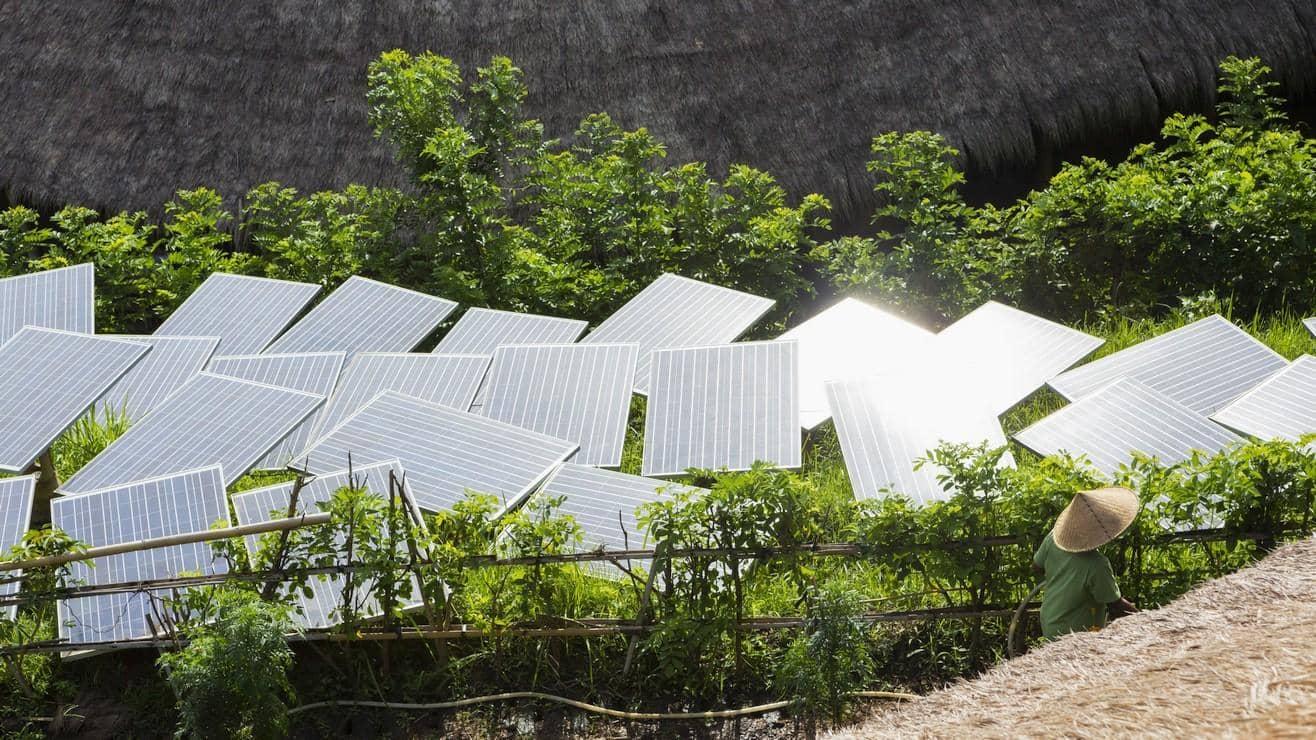
Group
Supporting the transition to a low carbon economy
Climate change is one of the greatest challenges facing the world today. We are determined to do all we can to support the transition to a low carbon economy, while ensuring that global energy needs continue to be met.
Barclays has an important role to play in taking a responsible and sustainable approach to the financing of more carbon-intensive energy sources. We are also financing the growth of renewable energy sources, and are helping our clients to transition to a low-carbon economy, including smarter cities, more sustainable agriculture, and better resource management. And, we are reducing the carbon footprint of our own operations, including committing to procure 100% renewable energy by 2030.
In support of the global transition to a more sustainable economy, we are developing a range of products and services, including:
- Facilitating £27.3bn in financing for social and environmental segments across Barclays including green bonds and renewable financing in 2018
- The first green mortgage for customers by a mainstream UK bank
- Green loans, green asset finance, green deposits and green innovation finance
Regarding fossil fuels, we expect there to be a significant shift away from carbon-based fuel use in the long term, and our financing activity will reflect that change. In most scenarios, however, oil and gas are expected to continue to be relied upon as a main source of energy for some time to come.
The reliance on gas as a transition fuel, and a partial replacement for oil, is expected to increase over this period. Accordingly, it is important that Barclays takes a responsible approach to financing these necessary fuels in the near term. We have placed specific restrictions on what we will finance, ensuring we are balancing our responsibility to help keep the lights on and to support economic prosperity.
Barclays’ approach to carbon-intensive energy sectors
Our new approach is laid out in our Energy and Climate Change Statement, and we have clear restrictions in place:
- Arctic oil and gas – we have enhanced checks for any finance proposals for direct oil or gas exploration or extraction in the Arctic. We designed these to protect the fragile natural ecosystem and the rights of indigenous peoples in the Arctic Circle, including the Arctic National Wildfire Refuge and the Coastal Plains. We do not expect any such proposals to meet our criteria.
- Thermal coal – we have no appetite to project finance greenfield thermal coal mining development, or the construction or expansion of coal-fired power stations. Corporate clients owning and operating coal mines and coal-fired power station will continue to receive general corporate financing but we will review these arrangements and specific transactions related to these sectors on a case-by-case basis. We will also reduce our credit and lending exposure to clients deriving the majority of their revenue from thermal coal mining and power generation, or where more than 50% of clients’ power generation mix is coal-fired.
- Oil sands including oil sands pipelines – Barclays has introduced enhanced checks on any transaction in which the use of proceeds is for the exploration, extraction, transportation (including the construction of pipelines to carry oil sands), or processing of oil sands.
We take an enhanced due diligence approach to many projects in high carbon sectors and those that have a direct impact on indigenous peoples. Projects must demonstrate adherence to Free Prior Informed Consent; full compliance with all legal regulatory and permit requirements in the regions where they operate; continuous reduction in Greenhouse Gas (GHG) intensity; and implementation of procedures which minimise direct environmental impacts including land reclamation, air, ground and water pollution, fresh water use, and biodiversity protection. We are also fully committed to operating in accordance with the Universal Declaration of Human Rights and our approach is outlined in a Human Rights statement (PDF 245KB).
We will continue to keep our approach to the energy sector under review, and we have restrictions on additional sectors including Forestry and Palm Oil, and World Heritage Sites and Ramsar Wetlands.